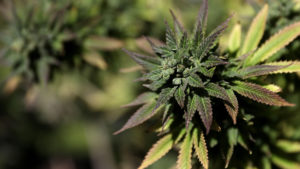The United States of Weed
[AdSense-A]
As we await the final results of the 2020 election, what we know for sure is that Arizona, Mississippi, Montana, New Jersey and South Dakota have joined the ranks of states who have legalized cannabis in some capacity. With these new states, one in three Americans now live in a state with some form of legal cannabis. A massive number considering the DEA still registers cannabis as a schedule I substance. Alongside ecstasy, LSD and heroin. Considering schedule II substances include cocaine, methamphetamine, methadone, oxycodone, and fentanyl, there seems to be a discrepancy between the states and the feds when it comes to cannabis.
Cannabis is indigenous to Central Asia and the Indian subcontinent. First cultivated in the modern classification known as Hemp, it was one of the earliest domesticated plants. In case you are confused, cannabis is a term that refers to all forms of the plant, marijuana is a term used for cannabis with higher levels of tetrahydrocannabinol, which is the intoxicating compound of cannabis and commonly known as THC. Hemp refers to cannabis with less than 0.3% THC. Hemp is a very diverse form of cannabis that has been used for practically everything. An early staple of ancient textiles with uses ranging from clothes to building materials. That said, humans pretty quickly started smoking cannabis and as the practice spread, THC levels slowly began to rise.
When discussing the USA and its cannabis hypocrisy, we quickly lead to America’s most complex and insidious issue. Racism. For if one is looking for the reason that cannabis was ever made (and continues to be) illegal, basic old fashioned racism is the answer. Through America’s early years, cannabis was not only legal, it was widely used for pharmaceuticals. As the USA continued to grow and shift west, Americans came ever more in contact with Mexicans. The conquest of massive amounts of previously Mexican territory following America’s victory in Mexican American War would further exacerbate the situation. By the 1910 Mexican Revolution and subsequent mass immigration to the USA, public opinion had turned on cannabis for no reason other than it was widely used by Mexicans.
As the 20th Century progressed conservative elements in America would use cannabis as soap box to stand on. Originally labeled as a scourge crossing the southern border, it’s uses among black sharecroppers became lightning rod for racial attacks. The 1950s saw conservatives using cannabis as an excuse to attack the jazz community and by extension, black Americans. Giving rise to a new excuse for racial oppression. As 1960s ushered in a counterculture, cannabis seemed to be a common line connecting many of the more progressive movements. While freedom of speech is protected by the Constitution, the criminalization of cannabis gave police the excuse they needed to break up the mass protests that defined that decade.
The 1970s continued this tradition. Cannabis was consistently used as a reason to break up protests, regardless of whether it was present or not. All it took was one police officer stating they “smelled marijuana” and the police suddenly had a legal reason to breakup any peaceful gathering. Ronald Reagan’s now infamous War on Drugs would formalize these attacks on cannabis. And while white and black Americans tended to use the substance at the same rate, black Americans have traditionally been arrested for cannabis offenses at a four to one rate.
It would be wonderful to say that our federal government has seen the error of their ways. Has in some form corrected the intense hypocrisy of cannabis’ schedule I label, but that is not true. A massive 40,000 Americans are currently serving a prison sentences for a cannabis a related offense. The vast majority of these prisoners are people of color. Considering the predatory nature of the United States use of cannabis laws and the innate bias of our judicial system, it is hard to see cannabis’s schedule I label as anything but a form of suppression.
The good news is the states are stepping in. While possession of cannabis is still a federal crime, actual cannabis related arrests are predominantly done by local police. Since these local police are charged with upholding state laws, cannabis related arrests are beginning to decline. 15 states have fully legalized cannabis consumption, and a host of others have either decriminalized or are providing access for medical use. In fact, once the enforcement changes from this most recent election take effect, there will be only seven states that still list cannabis as totally illegal for all uses. Once again, the citizens of America find themselves looking at federal government that is woefully disconnected from the population it governs. Hopefully, a more progressive future awaits the American people, and this unjust and racially motivated hypocrisy will come to an end.


